Your cart is currently empty!
Month: July 2024
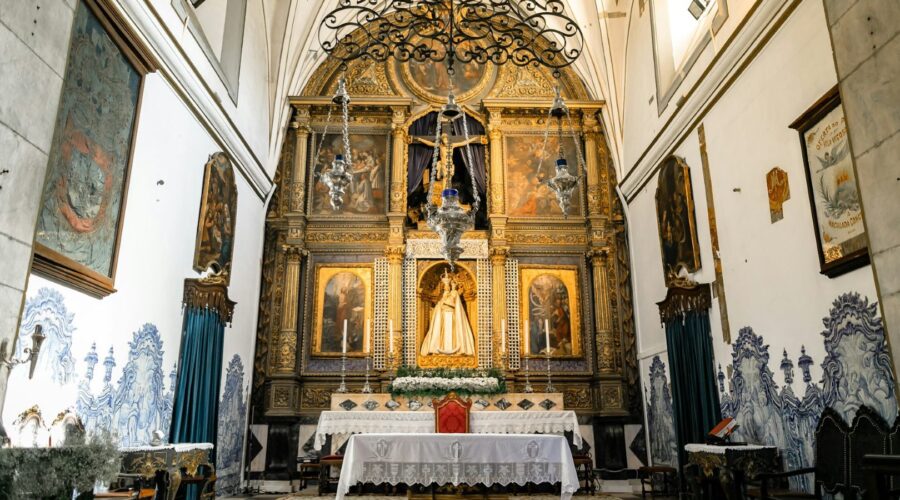
Easter Services Near Me: A Comprehensive Guide to Local Celebrations
Introduction
As Easter approaches, many churches across the nation prepare for special services to commemorate the resurrection of Jesus Christ. Whether you’re a devoted Christian seeking a meaningful way to celebrate or exploring the traditions, finding the right Easter service near you is essential. This comprehensive guide will provide you with a detailed overview of Easter services in your area, helping you make an informed choice.
Finding Easter Services
Online Directories
Church Websites
Visit the websites of local churches to check their Easter service schedules and any special events they may host.
Community Listings
- Local newspapers often publish Easter service listings.
- Community centers or libraries may have information on nearby Easter services.
Types of Easter Services
Sunrise Services
These services are held at or near sunrise on Easter morning and typically feature a combination of music, scripture readings, and a sermon. They offer a serene and reflective way to start the Easter day.
Traditional Services
Traditional Easter services are usually held in the morning and include a full liturgy, hymns, and a sermon. They often include communion or the Lord’s Supper.
Contemporary Services
Contemporary services are more informal and often feature modern music, multimedia elements, and a relevant message. They are designed to appeal to a wider audience.
Family Services
Family services are geared towards families with young children and may include interactive activities, games, and a simplified message.
Choosing an Easter Service
Denomination
Consider the denomination of the church to ensure that the service aligns with your beliefs and practices.
Location
Choose a church that is conveniently located and accessible to you.
Service Time
Select a service time that fits your schedule and allows you to attend comfortably.
Service Style
Determine what type of service you prefer (sunrise, traditional, contemporary, family) and choose accordingly.
Special Events
Check if the church offers any special events or activities during Easter, such as Easter egg hunts, potlucks, or live music.
Tips for Attending an Easter Service
- Arrive on time to secure a seat and participate fully.
- Dress respectfully, as most churches have dress codes.
- Bring a Bible or prayer book if desired.
- Follow along with the service and participate in the singing and prayers.
- Be mindful of others and avoid distractions or disturbances.
Conclusion
Finding the right Easter service near you can enhance your Easter experience and deepen your connection to your faith or community. Use the resources provided in this guide, consider the factors discussed, and choose a service that best meets your needs. May this Easter be a time of renewal, joy, and hope for you and your loved ones.
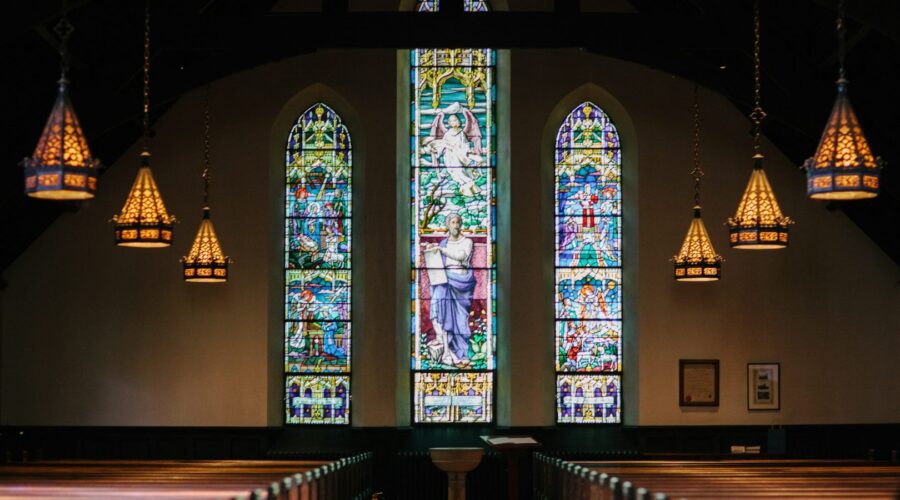
Unlocking the Essence of LifePointe Church: A Comprehensive Guide
Introduction
LifePointe Church, renowned for its vibrant community and impactful ministries, has become a beacon of hope and spiritual growth for countless individuals. Embracing a mission to connect people to God and each other, this church has established a transformative presence in its local community and beyond. In this comprehensive guide, we will delve into the core aspects of LifePointe Church, exploring its foundational beliefs, core values, and the multifaceted ministries that have shaped its identity.
Core Beliefs
- The Bible is the authoritative and inspired Word of God, containing all truth necessary for life and faith.
- There is one God, eternally existing in three persons: the Father, the Son, and the Holy Spirit.
- Jesus Christ is the only begotten Son of God, born of a virgin, who lived a sinless life, died on the cross as a sacrifice for our sins, and rose from the dead.
- Salvation is a free gift of God, received by faith in Jesus Christ alone.
- The Holy Spirit indwells every believer, empowering them to live a Christ-like life and participate in the work of God.
Core Values
LifePointe Church is guided by a set of core values that shape its culture and ministry:
- Connect: Building authentic relationships and fostering a sense of community.
- Grow: Nurturing spiritual maturity and discipleship through Bible study, prayer, and practical application.
- Serve: Actively engaging in ministry within the church and beyond, meeting the needs of others.
- Multiply: Empowering individuals to reach out to their communities, share the Gospel, and make disciples.
- Excellence: Striving for the highest standards in all aspects of ministry and service.
Ministries
LifePointe Church offers a wide range of ministries that cater to the diverse needs of its congregation and the surrounding community:
Sunday Worship Services
Weekly worship services are the heart of LifePointe’s ministry. These services feature dynamic preaching, inspiring music, and opportunities for prayer and reflection.
Small Groups
Small groups provide a nurturing environment for members to connect, study the Bible, and grow in their faith alongside others.
Children’s Ministry
LifePointe’s vibrant children’s ministry offers age-appropriate programs and activities that help children learn about God, develop their faith, and build lasting friendships.
Youth Ministry
The youth ministry engages teenagers through relevant programs, Bible study, and mentorship, equipping them for spiritual growth and leadership.
Missions and Outreach
LifePointe Church actively participates in local and global missions, supporting ministries that address poverty, homelessness, and other pressing needs.
Leadership and Staff
LifePointe Church is led by a team of experienced pastors and staff members who are committed to serving the congregation and fulfilling the church’s mission.
Leadership Team Name Title Contact Pastor John Smith Lead Pastor [email protected] Pastor Mary Jones Associate Pastor for Discipleship [email protected] Pastor David Brown Associate Pastor for Missions [email protected] Community Impact
LifePointe Church has made a significant impact on its surrounding community through its outreach programs and partnerships. The church regularly organizes community events, provides food assistance to the needy, and supports local organizations working to address social issues.
Join the LifePointe Family
If you are seeking a vibrant and welcoming church home where you can connect with God, grow in your faith, and make a difference, LifePointe Church invites you to join its community. Visit the church’s website or contact the staff for more information about worship services, small groups, and other ministries.
Conclusion
LifePointe Church stands as a testament to the transformative power of faith and the impact that a dedicated community can have. Through its unwavering commitment to biblical truth, core values, and multifaceted ministries, the church continues to be a source of hope, growth, and service within its community and beyond. By embracing the journey of discipleship and actively participating in its mission, individuals can experience the transformative presence of God and become catalysts for positive change in the world.
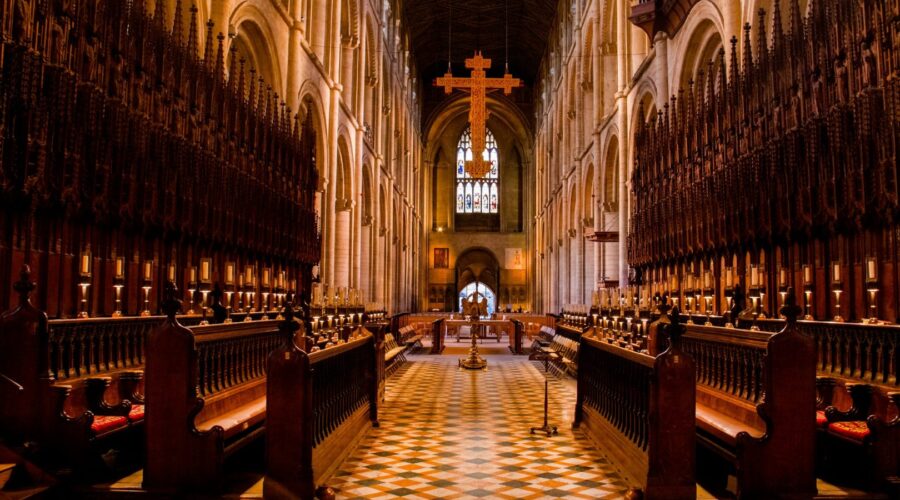
Discover the Abundant Grace of Fellowship Baptist Church: A Haven for Spiritual Growth
An Introduction to Fellowship Baptist Church
Nestled in the heart of a vibrant community, Fellowship Baptist Church extends a warm and welcoming embrace to all who seek a transformative spiritual journey. As a congregation rooted in the Baptist tradition, we firmly uphold the principles of believer’s baptism, the autonomy of the local church, and the inerrancy of the Scriptures.
Core Values and Beliefs
Baptismal Covenant
Fellowship Baptist Church regards baptism as a sacred and voluntary act of faith, administered to individuals who have personally received Jesus Christ as their Savior. Through baptism, believers make a public declaration of their commitment to follow Christ and identify with his death, burial, and resurrection.
Autonomy of the Local Church
We firmly believe in the autonomy of the local church, recognizing its authority to govern itself under the headship of Christ. Our church is self-governing, adhering to the principles of democracy while seeking divine guidance through prayer and the study of the Scriptures.
Inerrancy of Scripture
The Bible, consisting of the Old and New Testaments, is the infallible, authoritative, and inerrant Word of God. We hold that the Scriptures are the ultimate standard for faith and practice, providing a comprehensive guide for our daily living.
Ministries and Programs
Worship Services
Our worship services are vibrant and uplifting, characterized by heartfelt music, dynamic preaching, and a genuine atmosphere of reverence. We seek to create an environment where individuals can encounter the presence of God, engage in meaningful worship, and receive spiritual nourishment.
Sunday School
Sunday School offers a structured and engaging approach to biblical education. Through age-specific classes, individuals are provided with opportunities to delve deeper into the Scriptures, grow in their understanding of God’s Word, and apply its teachings to their daily lives.
Discipleship Program
Our discipleship program is designed to equip and empower believers to fulfill their calling in Christ. Through personalized mentorship and small-group gatherings, individuals are guided in their spiritual growth, encouraged to develop Christ-like character, and equipped to serve effectively.
Community Outreach
Fellowship Baptist Church is actively engaged in community outreach, striving to make a positive impact on the lives of those around us. We partner with local organizations, provide support to those in need, and share the message of God’s love and salvation with our neighbors.
Leadership and Pastoral Staff
Pastoral Staff
Our pastoral staff is composed of dedicated and experienced ministers who are committed to serving the congregation and guiding its spiritual journey. They provide compassionate counseling, insightful preaching, and a shepherd’s heart for all who seek their guidance.
Deacons and Deaconesses
Our deacons and deaconesses are elected by the congregation to serve as a body of spiritual leaders and support. They assist the pastor in various aspects of church ministry, including pastoral care, financial management, and community outreach.
Get Involved
We invite you to experience the transformative power of fellowship, worship, and service at Fellowship Baptist Church. Join us for any of our services or programs, and let us journey together in discovering the abundant grace of our Lord.
- Visit our website at www.fellowshipbaptistchurch.org for more information
- Follow us on social media for updates and announcements
- Contact us at [email protected] to learn more about our ministries
Frequently Asked Questions
What are the service times?
Our Sunday worship services are held at 9:00am and 11:00am.
Do you have a children’s ministry?
Yes, we offer age-specific children’s programs during both worship services.
Is there a dress code?
We encourage modest and respectful attire for worship services.
Can I visit anonymously?
Absolutely. We welcome visitors to attend our services and experience the fellowship without any obligation.
Conclusion
Fellowship Baptist Church is a vibrant and welcoming community of faith where individuals can encounter the transforming power of God’s grace. Through our diverse ministries and dedicated leadership, we strive to create an environment where believers can grow in their faith, serve others with compassion, and experience the fullness of God’s love.
Join us today and embark on a journey of spiritual growth and fellowship at Fellowship Baptist Church.
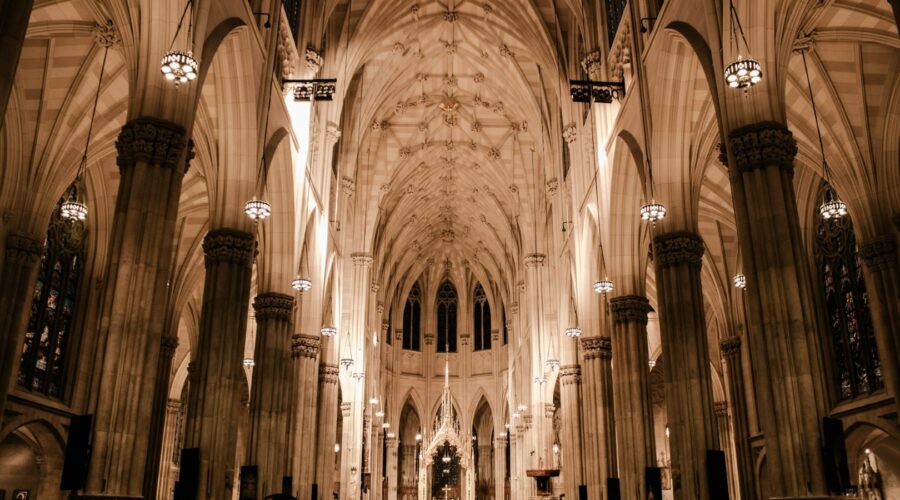
Cowboy Church: A Unique Blend of Faith and Western Culture
Cowboy churches, also known as Western churches, are a unique and vibrant form of Christian worship that combines the traditional tenets of Christianity with the culture and traditions of the American cowboy. These churches are typically found in rural and Western communities, and they offer a welcoming and inclusive atmosphere for people of all backgrounds.
The History of Cowboy Churches
The origins of cowboy churches can be traced back to the late 1800s, when itinerant preachers would travel the Western frontier, holding religious services in cattle camps and bunkhouses. These preachers often incorporated Western themes and language into their sermons, and they developed a unique style of worship that appealed to the rugged and independent cowboys of the time.
In the early 1900s, the first permanent cowboy churches were established in Texas and Oklahoma. These churches quickly gained popularity, and by the mid-century, cowboy churches could be found in many Western states. Today, there are over 1,000 cowboy churches in the United States, and they continue to be an important part of many Western communities.
The Distinctive Features of Cowboy Churches
Cowboy churches are known for their distinctive features, which set them apart from traditional churches. These features include:
- Casual dress
- Western music
- Lay leadership
- Emphasis on community
Cowboy churches typically have a casual dress code, and attendees are often seen wearing cowboy boots, jeans, and hats. The music at cowboy churches is usually Western in style, and it often includes traditional hymns, cowboy songs, and gospel music. Cowboy churches are typically led by lay leaders, who are elected by the congregation. These leaders are responsible for overseeing the church’s operations and for preaching the sermons.
One of the most important aspects of cowboy churches is their emphasis on community. Cowboy churches are often the center of social activity in small Western communities, and they provide a place for people to gather, socialize, and support one another.
The Benefits of Attending a Cowboy Church
There are many benefits to attending a cowboy church. These benefits include:
- A sense of community
- Spiritual growth
- A connection to Western culture
Cowboy churches offer a strong sense of community, and they provide a place for people to connect with others who share their values and interests. Cowboy churches also offer opportunities for spiritual growth, and they can help people to deepen their faith. Additionally, cowboy churches can provide a connection to Western culture, and they can help people to learn more about the history and traditions of the American cowboy.
How to Find a Cowboy Church
If you are interested in attending a cowboy church, there are a few things you can do to find one. You can start by searching online for cowboy churches in your area. You can also ask friends or family members if they know of any cowboy churches. Once you have found a few cowboy churches, you can visit them to see which one is the best fit for you.
Conclusion
Cowboy churches are a unique and vibrant part of American culture. They offer a welcoming and inclusive atmosphere for people of all backgrounds, and they provide a sense of community, spiritual growth, and a connection to Western culture. If you are looking for a church that is different from the traditional model, then a cowboy church may be the perfect place for you.
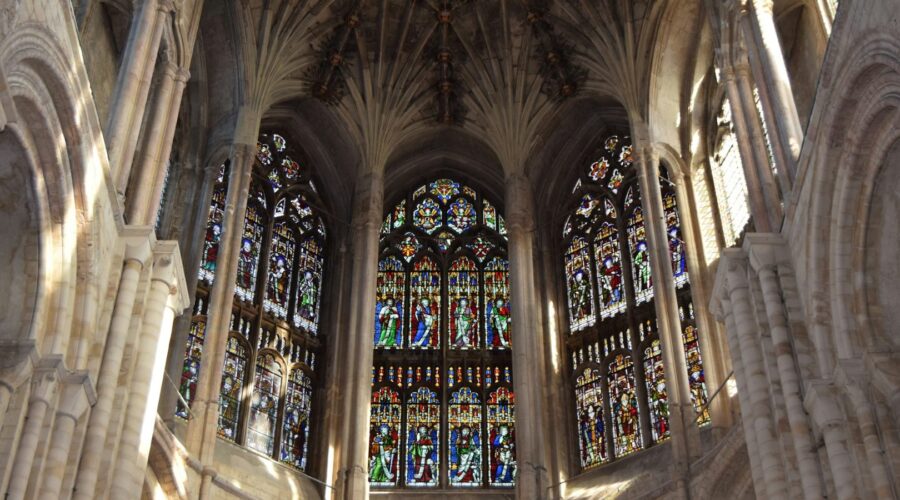
Hope City: A Comprehensive Guide to the Oasis of Recovery
“`html
Introduction
Hope City is a unique and innovative recovery community that provides a safe and supportive environment for individuals seeking to overcome addiction and mental health challenges. Established on the principles of harm reduction, trauma-informed care, and peer support, Hope City offers a comprehensive range of services designed to empower residents on their journey towards recovery.
What is Hope City?
Hope City is a non-profit organization that operates a residential treatment facility in the heart of a vibrant urban center. The community provides a continuum of care that includes:
- Detoxification and withdrawal management
- Residential addiction treatment
- Peer support and mentoring
- Vocational training and job placement
- Housing and food assistance
li>Outpatient therapy and support groups
How Does Hope City Work?
Hope City employs a holistic approach to addiction treatment, addressing the physical, emotional, and social aspects of recovery. Residents participate in a structured schedule of activities that includes:
Therapy and Counseling
- Individual therapy
- Group therapy
- Family therapy
Education and Life Skills
- Substance abuse education
- Relapse prevention
- Life skills training (e.g., budgeting, cooking, job searching)
Vocational and Educational Opportunities
- Job training and placement
- GED and college preparation
- Volunteer opportunities
Who Benefits from Hope City?
Hope City welcomes individuals from diverse backgrounds who are struggling with addiction and related issues. The community is particularly well-suited for those who:
- Have a history of chronic relapse
- Have co-occurring mental health conditions
- Have experienced trauma or abuse
- Are facing homelessness or food insecurity
The Impact of Hope City
Hope City has a proven track record of helping individuals achieve lasting recovery. Studies have shown that residents of Hope City experience:
- Increased rates of abstinence
- Improved mental health
- Enhanced job skills and employment
- Reduced recidivism rates
How to Get Involved
If you are interested in learning more about Hope City or applying for admission, you can contact them through the following channels:
- Website: www.hope-city.org
- Email: [email protected]
- Phone: (555) 555-HOPE
Additional Resources
Conclusion
Hope City is a beacon of hope for individuals seeking recovery from addiction and mental health challenges. By providing a safe, supportive, and holistic environment, Hope City empowers residents to reclaim their lives and achieve their full potential. If you or someone you know is struggling with addiction, consider reaching out to Hope City today.
“`
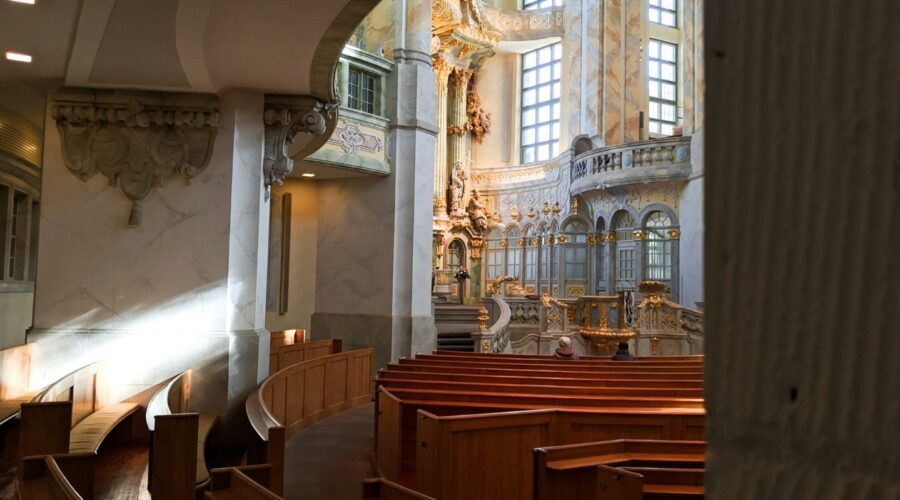
Discover the History and Impact of St. Vincent de Paul Catholic Church
About St. Vincent de Paul Catholic Church
Founded in 1856, St. Vincent de Paul is a vibrant and historic Catholic parish in Chicago, Illinois. Named after the patron saint of charity, the church has played a significant role in the spiritual, social, and cultural life of the community for over a century and a half.
Historical Significance
Early Years
In the mid-19th century, the Catholic population of Chicago was rapidly growing. In 1854, Bishop James Duggan established the parish of St. Vincent de Paul, and the first church building was constructed in 1856. The parish became a focal point for the Irish immigrant community in the area.
Growth and Expansion
As the congregation grew, the church building was expanded and remodeled several times. In 1902, the current neo-Gothic church was completed, which has been listed on the National Register of Historic Places.
Spiritual Life
Mass Schedule
St. Vincent de Paul offers a variety of Mass schedules to accommodate the diverse needs of its parishioners:
- Weekdays: Monday-Friday at 7:00 AM and 7:00 PM
- Saturday: 5:00 PM
- Sunday: 7:00 AM, 9:00 AM, 11:00 AM, 1:00 PM, and 5:00 PM
Sacraments
In addition to Mass, the church offers various sacraments:
- Baptism
- Confirmation
- Holy Communion
- Penance
- Anointing of the Sick
Religious Education
St. Vincent de Paul places great emphasis on religious education for children and adults. The parish offers a comprehensive religious education program, including:
- Sunday School
- Confirmation classes
- Adult faith formation programs
Social Outreach
St. Vincent de Paul Society
The parish is home to an active chapter of the St. Vincent de Paul Society, a global charitable organization that provides assistance to those in need. The local chapter offers a range of services, including:
- Food pantry
- Clothing drives
- Homeless outreach
- Emergency financial assistance
Other Social Programs
St. Vincent de Paul also offers a variety of other social programs, such as:
- Soup kitchen
- Senior citizens group
- Youth group
- Community garden
Cultural Events
St. Vincent de Paul is not only a center for spiritual and social life but also a vibrant cultural hub. The parish hosts a variety of events throughout the year, including:
- Annual summer festival
- Concerts and performances
- Art exhibitions
- Historical tours
Architecture and Art
Neo-Gothic Church
The current church building of St. Vincent de Paul is a stunning example of neo-Gothic architecture. Its soaring spires and elaborate ornamentation have made it a beloved landmark in the community.
Stained Glass Windows
The church is renowned for its beautiful stained glass windows, which depict scenes from the life of Jesus and the saints. These windows were designed by renowned artists and add a touch of awe-inspiring artistry to the interior.
Stations of the Cross
The Stations of the Cross, a series of 14 sculptures depicting the final journey of Jesus, are another notable feature of the church. These sculptures are made of bronze and were created by the Italian artist Romano Romanelli.
Conclusion
St. Vincent de Paul Catholic Church has been a cornerstone of the Chicago community for over 150 years. It is a place of worship, spiritual growth, charitable outreach, and cultural enrichment. With its historic architecture, vibrant faith community, and commitment to social justice, St. Vincent de Paul continues to make a significant impact on the lives of its parishioners and the surrounding neighborhood.
Contact Information
Address: 1010 W Webster Ave, Chicago, IL 60614
Phone: (773) 248-2105

Discover the Transformational Power of Pursuit Church: A Comprehensive Guide
About Pursuit Church
Pursuit Church is a vibrant, community-oriented church with a mission to help people encounter Jesus, grow in their faith, and live lives of purpose. Founded in 2005, Pursuit has grown rapidly, with campuses in numerous locations across the United States and beyond.
Core Values
Pursuit Church’s core values are:
* Love God Passionately: Worshipping God with all our hearts, minds, and souls.
* Love People Authentically: Embracing others with compassion, acceptance, and empathy.
* Live Missionally Intentionally: Sharing the love of Christ and making a positive impact in our communities.Services and Ministries
Regular Services
Pursuit offers weekly services that feature dynamic worship, inspiring messages, and opportunities for personal connection. Services are designed to be engaging, relevant, and accessible to people of all ages and backgrounds.
Ministries
Pursuit has various ministries that cater to diverse needs, including:
* Youth Group: Engaging youth in biblical teaching, fun activities, and spiritual growth.
* Young Adults: Providing community, mentorship, and opportunities for young adults to connect with God and others.
* Women’s Ministry: Empowering women through biblical teachings, practical support, and community.
* Men’s Ministry: Encouraging men to grow spiritually, develop close relationships, and become leaders in their families and communities.Core Beliefs
Pursuit Church adheres to the following core beliefs:
* The Bible is the inspired, authoritative, and unchanging Word of God.
* There is one God who exists in three persons: Father, Son, and Holy Spirit.
* Jesus Christ is the Son of God, born of a virgin, who lived a perfect life, died on the Cross for our sins, and rose again from the dead.
* Salvation is a free gift from God, received by faith in Jesus Christ.
* The Holy Spirit empowers believers to live a holy and fruitful life.
* The Church is the body of Christ, called to share the Gospel and make disciples of all nations.How to Get Involved
There are many ways to get involved with Pursuit Church:
* Attend Services: Experience the vibrant atmosphere and inspiring messages in person.
* Join a Ministry: Find a ministry that aligns with your interests and connects you with others.
* Volunteer: Serve the church and make a meaningful contribution to the community.
* Give Tithes and Offerings: Support the church’s mission and impact.
* Prayer: Pray regularly for the church and its members.Benefits of Attending Pursuit Church
* Spiritual Growth: Engage in biblical teaching, experience dynamic worship, and grow closer to God.
* Community: Connect with other believers, build meaningful relationships, and find support.
* Purpose: Discover your God-given purpose and live a life of impact.
* Mentorship: Receive guidance and support from experienced leaders and pastors.
* Service: Make a difference in the lives of others through various volunteer opportunities.Frequently Asked Questions
**Q: What is Pursuit Church’s denomination?**
A: Pursuit Church is non-denominational.**Q: Are there any age-specific services?**
A: Yes, Pursuit offers services specifically designed for youth and young adults.**Q: How can I find a Pursuit Church near me?**
A: Visit the Pursuit Church website to find a campus in your area.**Q: What is the dress code for services?**
A: Casual dress is encouraged.**Q: Is there childcare available?**
A: Yes, most Pursuit campuses offer childcare services.Conclusion
Pursuit Church is a vibrant and transformative community that is passionate about helping people encounter Jesus, grow in their faith, and live lives of purpose. With its dynamic services, engaging ministries, and unwavering commitment to the core values of love, authenticity, and mission, Pursuit is a place where you can connect with God, find community, and make a difference in the world. Join the Pursuit family today and experience the transformative power of this thriving church.

Explore the Grandeur of the Basilica of the Immaculate Conception
Nestled amidst the vibrant streets of Washington, D.C., the Basilica of the Immaculate Conception stands as a beacon of faith, architectural splendor, and historic significance. Here’s a comprehensive guide to delve into its captivating story and awe-inspiring features:
A Majestic History
The genesis of the Basilica of the Immaculate Conception can be traced back to 1847, when Archbishop John Carroll envisioned a grand cathedral worthy of the burgeoning Catholic community in the nation’s capital. The cornerstone was laid in 1848, marking the commencement of a remarkable journey.
Construction spanned three decades, encountering numerous challenges and architectural revisions. Finally, in 1884, the basilica was consecrated, becoming the first Basilica in the United States and the sixth in the world.
A Symphony of Architectural Styles
The Basilica of the Immaculate Conception is a fusion of various architectural styles, each contributing to its unique aesthetic:
Neo-Gothic Exterior
- Pointed arches
- Flying buttresses
- Elaborate spires
Romanesque Revival Interior
- Massive columns
- Rounded arches
- Intricate mosaics
Byzantine Influences
- Use of domes
- Lavish mosaics
- Symbolic iconography
A Sanctuary of Art and Devotion
Step inside the basilica and be greeted by an awe-inspiring symphony of beauty and devotion:
Captivating Mosaics
- Covering over 500,000 square feet
- Depicting biblical scenes, saints, and symbolic imagery
Stunning Stained-Glass Windows
- Over 200 windows
- Illustrating scenes from the Gospels, the lives of saints, and historical events
Marble and Bronze Statuary
- Intricately carved figures
- Depicting biblical characters, saints, and historical figures
A Tapestry of Faith
Beyond its architectural grandeur, the Basilica of the Immaculate Conception is a living testament to the power of faith:
Masses and Services
- Daily masses
- Weekend services
- Special liturgies
Pilgrimage Destination
- Attracts pilgrims from around the world
- Site of numerous miracles and answered prayers
Community Outreach
- Soup kitchen
- Homeless shelter
- Education programs
Tips for Visitors
To enhance your visit to the Basilica of the Immaculate Conception, consider these tips:
- Dress respectfully.
- Allow ample time to explore.
- Join a guided tour (available on weekends).
- Attend a mass or service.
- Respect the sacred nature of the space.
Conclusion
The Basilica of the Immaculate Conception is a masterpiece of architecture, a sanctuary of faith, and a tapestry of human history. Its grandeur, beauty, and enduring legacy make it a must-see destination for visitors from all walks of life.
Whether you’re a pilgrim seeking spiritual solace, an art enthusiast admiring its stunning beauty, or a history buff exploring its significance, the Basilica of the Immaculate Conception is sure to leave an unforgettable impression.
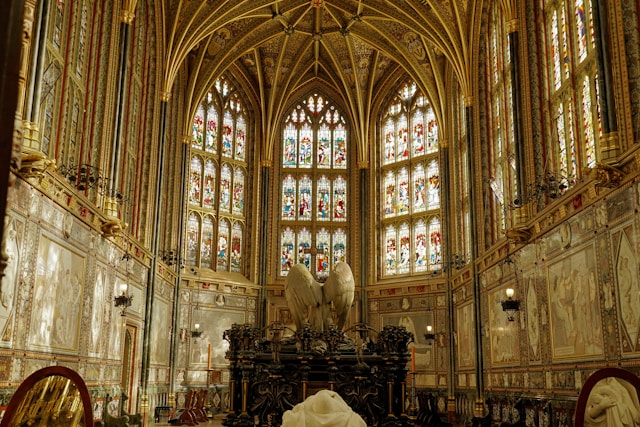
Anointing: A Divine Blessing of Empowerment
Introduction
Anointing is a profound religious practice that has been observed throughout history and across cultures. It is an act of consecration, a divine blessing, and a symbol of God’s favor and presence. Anointing involves anointing an individual or object with a sacred substance, such as oil, to signify their special status, authority, or purpose.
Purposes of Anointing
Anointing serves various purposes in different religious contexts:
Priestly Anointing
In many religions, individuals are anointed as priests or religious leaders to symbolize their ordination and authority. The anointing signifies their special calling and responsibility to mediate between God and the people.
Kingly Anointing
Throughout history, kings and rulers have been anointed to represent the divine authority they hold. The oil symbolizes God’s blessing and empowerment, legitimizing their reign and responsibility to lead their people justly.
Healing and Deliverance
In some religious traditions, anointing with oil is used for healing and deliverance. It is believed that the oil carries God’s healing power and can help individuals recover from physical or spiritual ailments.
Consecration of Objects and Places
Certain objects or places can also be anointed to signify their dedication to sacred or religious purposes. Anointing can sanctify temples, altars, and other objects used in worship.
The Biblical Perspective on Anointing
In the Bible, anointing holds significant importance and is associated with the following:
The Holy Spirit
In the New Testament, anointing is often connected with the outpouring of the Holy Spirit. Believers are said to be anointed with the Spirit, receiving His power and guidance in their lives.
Salvation
The Bible teaches that anointing is linked to salvation. In 1 John 2:20, it says, “You have an anointing from the Holy One, and you all know the truth.” Anointing represents God’s grace and the sealing of His Spirit, confirming our status as His children.
Practical Aspects of Anointing
In many religious practices, anointing is performed through various methods:
Oil Used for Anointing
Olive oil is commonly used for anointing due to its Biblical and symbolic connotations. It represents purity, healing, and the Spirit of God.
Procedure for Anointing
The specific procedure for anointing varies depending on the religious tradition. Generally, a small amount of oil is applied to the forehead, hands, or other parts of the body. Prayers and blessings are often uttered during the act.
Benefits of Anointing
Anointing is believed to impart various benefits to recipients:
Divine Blessings
Anointing signifies God’s favor and blessing upon individuals or objects. It symbolizes His presence, protection, and empowerment.
Spiritual Growth
Anointing is seen as a means of facilitating spiritual growth and maturity. It strengthens an individual’s connection with God and enhances their spiritual understanding.
Healing and Deliverance
In some traditions, anointing with oil is believed to bring physical and spiritual healing. It is used to treat illnesses, cast out demons, and promote overall well-being.
Conclusion
Anointing is a powerful religious practice that carries deep spiritual significance. It is an outward expression of God’s grace, empowerment, and blessing. Whether through priestly ordination, kingly rule, healing, or consecration, anointing serves as a reminder of our connection to the divine and the profound responsibilities that come with it.
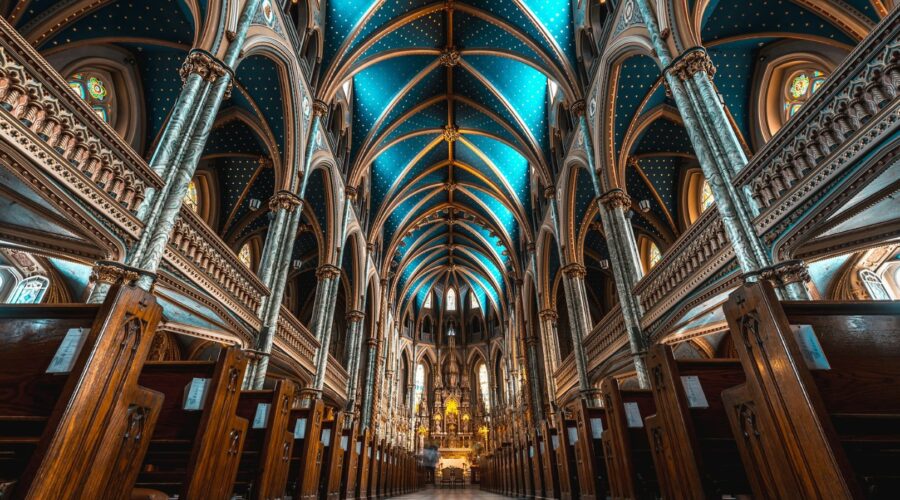
Discover the Rich History and Enchanting Architecture of St. James’s Church
Immerse yourself in the captivating history and architectural splendor of St. James’s Church, a beacon of ecclesiastical heritage and cultural significance. This comprehensive guide unravels the intriguing stories, hidden details, and awe-inspiring features that have made St. James’s Church an enduring landmark in the heart of London.
The Intriguing History of St. James’s Church
St. James’s Church traces its origins to the 12th century, with the first stone chapel likely built around 1140. However, the church’s most significant transformation occurred in the 17th century under the patronage of King Charles II.
The Wren’s Majestic Design
In 1661, Sir Christopher Wren, renowned for his architectural genius, was commissioned to redesign the church. Wren’s classical style resulted in an exquisite edifice, featuring a grand, columned portico, a soaring tower, and a spacious interior adorned with intricate carvings and stained-glass windows.
Royal Connections and Grand Weddings
St. James’s Church has witnessed a plethora of royal weddings, including Princess Anne’s marriage to Captain Mark Phillips in 1973. The church’s association with royalty continues to this day, with Queen Elizabeth II attending regular services.
Architectural Highlights of St. James’s Church
St. James’s Church boasts a harmonious blend of classical and Gothic architectural elements that create a visually captivating masterpiece.
The Towering Steeple
The church’s most striking feature is its towering spire, which reaches a height of 180 feet. Constructed from Portland stone, the steeple is adorned with intricate carvings and serves as a prominent landmark in the city skyline.
The Columned Portico
The grand portico at the church’s entrance is supported by six colossal Corinthian columns. These columns are adorned with intricate carvings and support a triangular pediment featuring a relief depicting Saint James the Great.
The Impressive Interior
The interior of St. James’s Church is a testament to Wren’s architectural brilliance. The nave is divided by rows of tall, fluted columns, creating a sense of grandeur and spaciousness.
Exploring the Notable Features of St. James’s Church
Beyond its architectural splendor, St. James’s Church is home to numerous notable features that enhance its historical and cultural significance.
The Historic Organ
The church’s renowned organ, built by renowned organ builder Bernard Smith in 1691, is one of the oldest surviving organs in London. The organ has undergone several restorations over the centuries and continues to be played for services and concerts.
The Poets’ Corner
St. James’s Church is renowned for its Poets’ Corner, a memorial to some of England’s most celebrated poets. Among those commemorated are John Dryden, William Blake, and Alfred, Lord Tennyson.
The Stained-Glass Windows
The church’s magnificent stained-glass windows depict a variety of biblical scenes and saints. The windows, created by renowned artists, such as Edward Burne-Jones and William Morris, add a vibrant and colorful element to the church’s interior.
Tips for Visiting St. James’s Church
To fully appreciate the beauty and significance of St. James’s Church, consider these practical tips:
- Check the church’s website for service times and special events.
- Book a guided tour in advance to delve deeper into the church’s history and architecture.
- Allow ample time to explore the church’s interior, including the Poets’ Corner and the stained-glass windows.
- Consider attending a musical performance in the church, such as an organ recital or a choral concert.
Additional Resources
- Official website of St. James’s Church
- St. James’s Church on Visit London
- St. James’s Church on Historic England
Conclusion
St. James’s Church stands as a testament to the enduring power of faith and the artistry of human ingenuity. Its rich history, magnificent architecture, and notable features have made it a beloved landmark in London, admired by countless visitors and locals alike. By exploring this ecclesiastical masterpiece, we not only appreciate its architectural beauty but also connect with the stories and traditions that have shaped it over centuries.
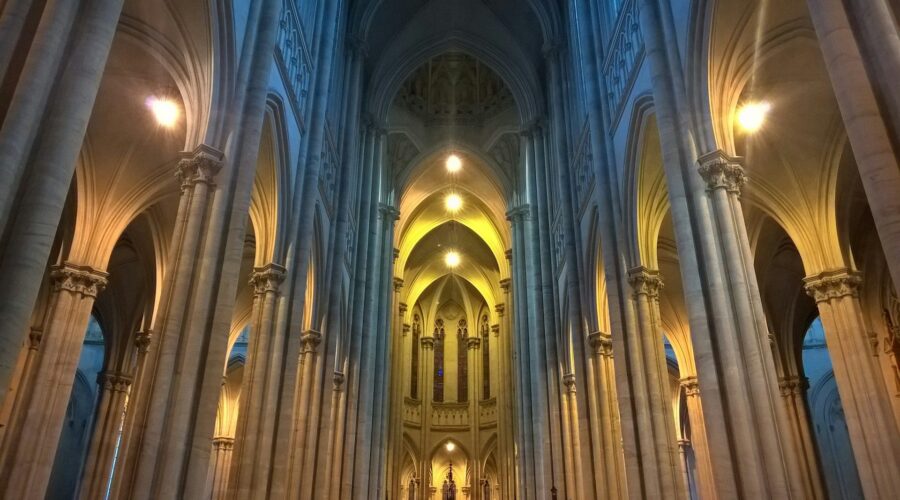
ICOC: A Comprehensive Guide to the International Church of Christ
Introduction
The International Church of Christ (ICOC) is a global Christian movement known for its emphasis on discipleship, evangelism, and social service. Founded in the 1970s, ICOC has grown to encompass thousands of congregations in over 150 countries.
This comprehensive guide aims to provide an in-depth overview of ICOC, exploring its history, beliefs, practices, and impact on the Christian community.
History
ICOC traces its roots back to 1979, when Kip McKean founded the Boston Church of Christ. Inspired by the New Testament model of church life, the congregation emphasized regular Bible study, discipleship, and outreach.
As the Boston Church grew, it began to plant new churches in other cities. In 1991, the movement was officially renamed the International Church of Christ.
Beliefs
ICOC holds to a conservative evangelical interpretation of Christianity. Its core beliefs include:
- The Bible as the sole authority for faith and practice
- The Trinity: God the Father, Jesus Christ the Son, and the Holy Spirit
- The need for personal conversion and baptism for salvation
- The importance of discipleship and mutual accountability
- The role of the church as the body of Christ on earth
Practices
ICOC is known for its distinctive practices, which are based on the New Testament model of church life:
Discipleship
ICOC places a strong emphasis on discipleship, believing that every member is called to make disciples. Disciples are typically paired with a mentor who provides guidance and support.
Outreach
Evangelism is a central part of ICOC’s mission. The church encourages members to share their faith with others through personal evangelism, outreach events, and gospel campaigns.
Community Life
ICOC emphasizes the importance of community and fellowship. Members gather regularly for Bible study, worship, and social events.
Church Leadership
ICOC’s leadership structure is based on a plurality of elders, who are responsible for overseeing the church’s spiritual and administrative affairs.
Impact
ICOC has had a significant impact on the Christian community worldwide:
Church Growth
ICOC has been one of the fastest-growing church movements in history. Thousands of new congregations have been planted over the decades.
Social Service
ICOC is actively involved in social service, providing assistance to those in need, including the homeless, orphans, and refugees.
Persecution
ICOC has faced criticism and persecution in some countries due to its conservative beliefs and practices. However, the church remains committed to its mission of sharing the gospel and serving the community.
Controversies
ICOC has been the subject of some controversies over the years, particularly regarding its strict emphasis on discipleship and its use of “shepherding,” a form of spiritual oversight.
However, it’s important to note that these controversies are not representative of the entire movement. ICOC is a diverse organization with a wide range of beliefs and practices.
Conclusion
The International Church of Christ is a vibrant and growing Christian movement that has made a significant impact on the world. Its emphasis on discipleship, evangelism, and community life has helped millions of people come to faith and experience God’s love.
While ICOC has faced some challenges and controversies, it remains a force for good in the world, continuing to share the gospel and serve those in need.
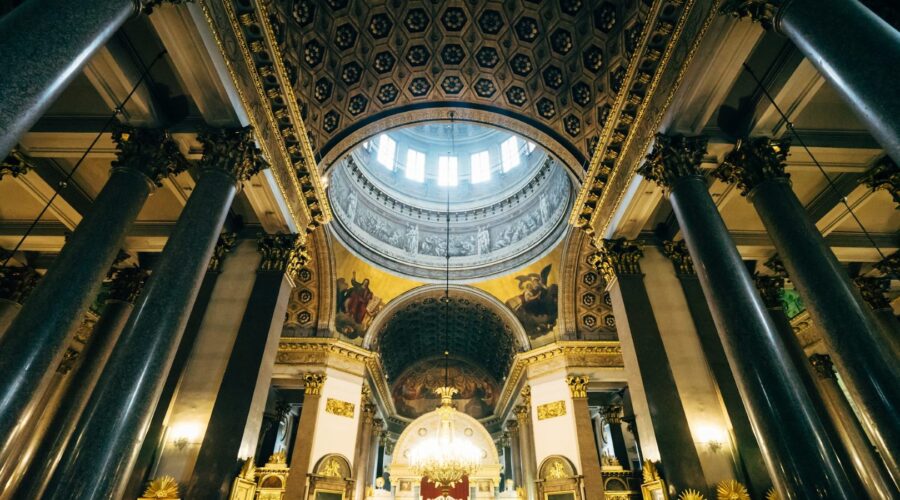
Saint Scholastica: A Saint for the 21st Century
Introduction
Saint Scholastica, the twin sister of Saint Benedict, is a powerful example of a woman who lived a life of faith and service. She is the patron saint of nuns, Benedictines, and education. Her feast day is February 10.
Early Life
Scholastica was born in Nursia, Italy, around 480 AD. She was the twin sister of Benedict. Their parents were wealthy and devout Christians. Scholastica was educated at home by her mother. She was a bright and inquisitive child who loved to learn.
Conversion and Vocation
At the age of 12, Scholastica decided to consecrate her life to God. She took a vow of virginity and joined a community of nuns. Benedict was also called to a life of religious service. He left home at the age of 14 to live as a hermit in the mountains.
Life as a Nun
Scholastica lived a simple and austere life as a nun. She spent her days in prayer, study, and work. She was known for her humility, obedience, and charity. Scholastica was a great example of a woman who lived a life of faith and service.
Abbess of Plombariola
In 525 AD, Scholastica was elected abbess of the monastery of Plombariola. She was a wise and compassionate leader who guided her nuns with love and wisdom. Scholastica served as abbess for 12 years until her death in 537 AD.
Legacy
Saint Scholastica is a powerful example of a woman who lived a life of faith and service. She is the patron saint of nuns, Benedictines, and education. Her feast day is February 10.
Patronage
- Nuns
- Benedictines
- Education
Shrines
There are many shrines dedicated to Saint Scholastica around the world. The most famous shrine is located in Nursia, Italy, where she was born and died.
Lessons from Saint Scholastica
Saint Scholastica can teach us many valuable lessons about how to live a life of faith and service. Here are a few of the most important lessons:
- Follow your vocation. God has a unique plan for each of us. It is important to discern what God is calling you to do and then follow that call with all your heart.
- Be humble. Scholastica was known for her humility. She never sought attention or praise. She simply served God and her neighbor with all her heart.
- Be obedient. Scholastica was always obedient to her superiors. She knew that obedience is a sign of humility and love.
- Be charitable. Scholastica was always willing to help others. She was known for her generosity and compassion.
Conclusion
Saint Scholastica is a powerful example of a woman who lived a life of faith and service. She is a model for all Christians who are called to follow in her footsteps.